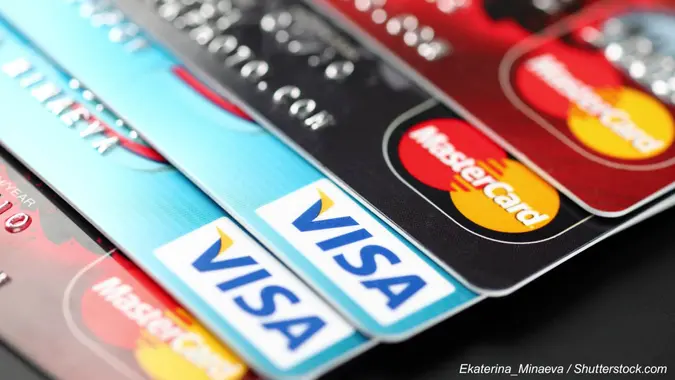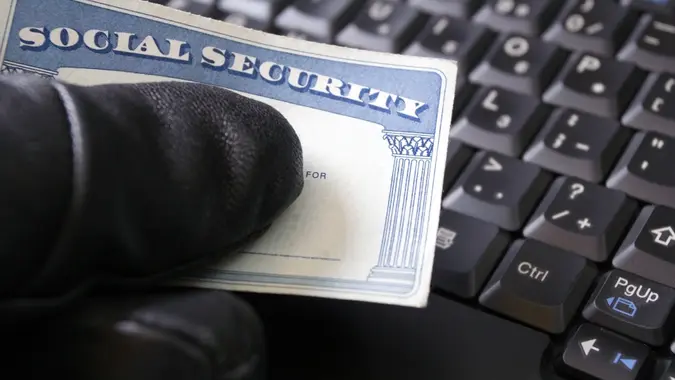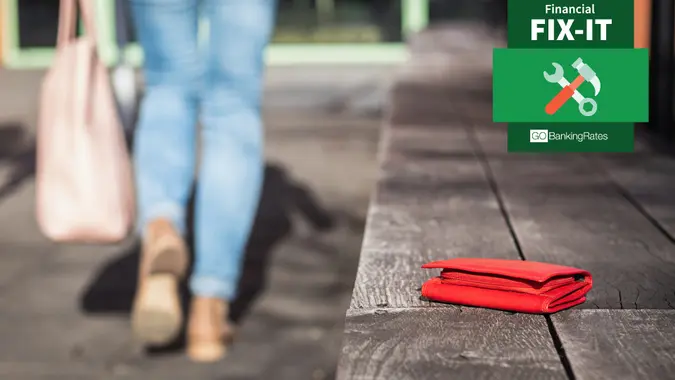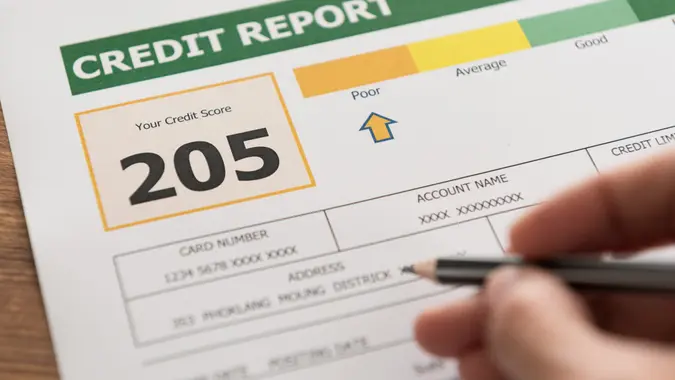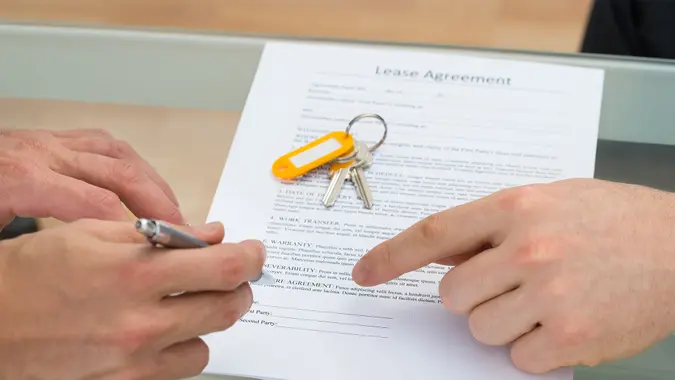What Is a Credit Freeze? And How Can You Do It?

Commitment to Our Readers
GOBankingRates' editorial team is committed to bringing you unbiased reviews and information. We use data-driven methodologies to evaluate financial products and services - our reviews and ratings are not influenced by advertisers. You can read more about our editorial guidelines and our products and services review methodology.

20 Years
Helping You Live Richer

Reviewed
by Experts

Trusted by
Millions of Readers
Maybe you’ve heard about putting a credit freeze on your credit report to protect you against identity theft, but what happens to your credit and credit report once you place the freeze? How do you even place a credit freeze on your credit report? Once you place one, can it be lifted?
GOBankingRates reached out to financial experts to get the answers on why you might need a credit freeze and how to place one.
What Is a Credit Freeze?
First, let’s define what a credit freeze actually is and what its effect on your credit is.
According to Experian.com, a credit freeze is a free service that limits access to your credit report so no one can view it without your consent.
This is really helpful if your personal information was exposed in some way, like in a data breach or if you’ve recently lost sensitive financial or identity documents.
“A credit freeze is a virtual padlock on your credit file,” said Mawuli Vodi, owner of Financially Present. “It’s a powerful and effective way to keep your credit file secure and avoid identity theft and fraudulence on your credit file. It functions similar to two-factor authentication. When you have a credit freeze and someone makes an inquiry using your Social Security number, it is a security checkpoint that forces them to request that you lift the freeze with the credit bureau before they can proceed further.”
Don’t worry: With a credit freeze, you can still use your current lines of credit and apply for credit-dependent entities.
“But, if you want to apply for new credit, you’ll need to lift the freeze temporarily,” said R.J. Weiss, founder of The Ways to Wealth.
How Is a Credit Freeze Different From a Credit Card Freeze?
You might have lost a credit card and reported it stolen, which put a freeze on that particular credit card. However, that is not a credit freeze.
“With a credit card freeze, you contact your credit card company to freeze a missing credit card so no one else can use it, and you can simply unfreeze the card if you find it,” said Todd Stearn, founder of The Money Manual. “If you don’t find it, you’ll need to let the credit card company know it’s missing so they can cancel it and issue you a new one.”
A credit freeze makes it so no one has access to any of your credit information, rather than just not being able to charge one card.
How Do You Place a Freeze on Your Credit?
The process to place a credit freeze is fairly straightforward. You’ll contact each credit bureau (Experian, Equifax and TransUnion) through email, phone or their website. You’ll verify your identity, then you’ll receive a PIN from each bureau that will allow you to freeze access to your credit. You can lift or “thaw” the freeze in the future. Some of the bureaus require you to use your PIN to unfreeze your credit, so make sure you keep that in a safe place.
How Does a Credit Freeze Protect You?
There are plenty of ways a credit freeze helps you. For one, it keeps your information protected from future fraudsters. “A credit freeze restricts access to your credit report, making it harder for identity thieves to open new accounts in your name,” Weiss said.
Gabe Kahn, the director of credit at Arro Finance, said a credit freeze can help prevent your family from being targeted as well.
“It’s particularly useful if you have family members, like parents or young children, who aren’t actively applying for credit,” Kahn said. “People in these demographics are often targeted for fraud for that reason, so you can protect them by freezing your credit. I always tell friends to freeze their kids’ credit reports to make sure there isn’t any fraud on them when they grow up and start applying for credit for the first time.”
Weiss added that a credit freeze can be beneficial even if your data hasn’t recently been exposed.
“It’s also useful for behavior modification,” he said. “For instance, if you’re trying to eliminate credit card debt and want to avoid easily applying for new credit cards, the extra step to unfreeze your credit can be a deterrent.”
Weiss cautioned that a credit freeze can’t undo what has already been exposed.
“While a credit freeze protects you by limiting access to new credit applications,” he said, “it doesn’t protect against all forms of identity theft and fraud. For example, it doesn’t remove your information from fraudulent sources. So, there are still ways we’re all at risk.”
More From GOBankingRates
- 9 Cars To Stay Away From In Retirement
- 10 Top Items To Buy at Aldi with a $50 Grocery Budget
- 5 Genius Things People With Healthy Savings Do
- 5 Myths About Debt That Nobody Should Believe in 2024
Our in-house research team and on-site financial experts work together to create content that’s accurate, impartial, and up to date. We fact-check every single statistic, quote and fact using trusted primary resources to make sure the information we provide is correct. You can learn more about GOBankingRates’ processes and standards in our editorial policy.
- Experian. 2020. "How to Freeze Your Credit for Free."
- CNBC Select. 2021. "Freezing his credit helps this expert ‘sleep better’ at night—here’s why he says everyone should do it."
 Written by
Written by  Edited by
Edited by 







